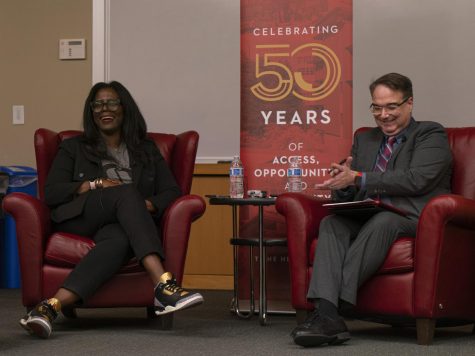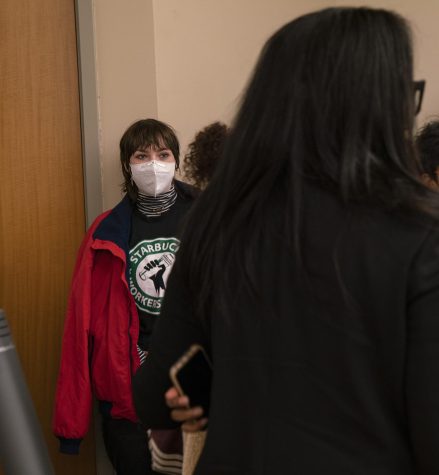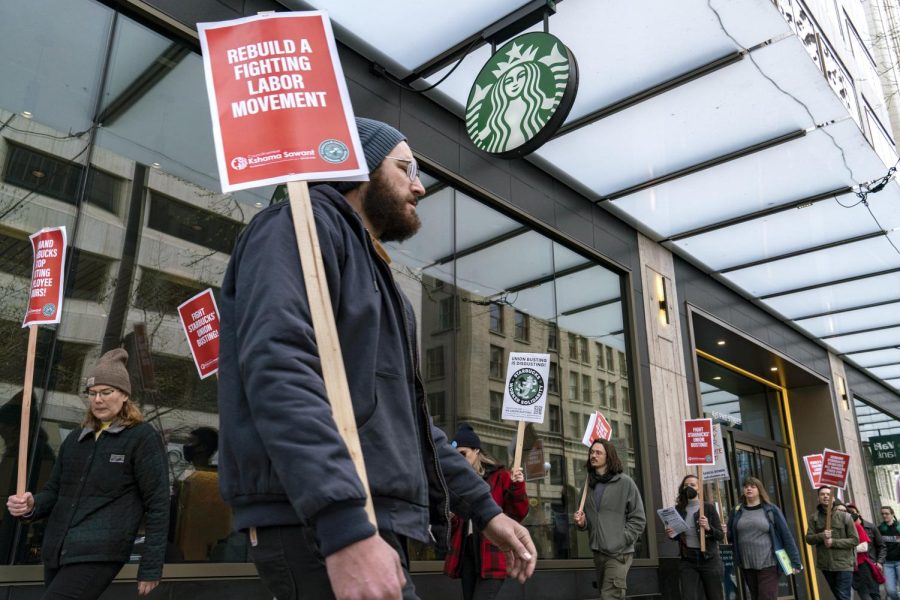Starbucks Stalls Progress in Labor Negotiations
The picket line at the 5th and Pike Starbucks location, 2022.
Unionized Starbucks workers allege that they continue to struggle to have their needs met due to the stalling of negotiating contracts. Starbucks employees went on strike nationwide on the company’s annual Red Cup Day, the busiest and most profitable day of the year, as a motivated attempt to bring the company to the negotiating table. More than 100 stores were involved in protests, eight of them in Washington state alone. The strikes intended to call attention to stalled union contracts and staffing issues that Starbucks has, in the view of labor organizers, neglected to address.
Dillon Wu, a second-year nursing major, works at the Starbucks adjacent to Seattle University on 12th Ave. and Columbia St.. Wu explained that most stores struck on Red Cup Day because it is the busiest day of the year without any additional staff support.
“For my store personally, we’re already hitting 100 customers every half hour during the week and on Red Cup Day it was probably double that but our staffing numbers didn’t change at all. There’s not enough people to do everything and you get burnt out,” Wu said.
Leading up to this action, more than 300 stores had union elections and 245 of them were in favor of unionizing. Starbucks Workers United and employees hoping to bargain for contracts will propose a Labor Management Committee. The group of workers would meet with employers on a monthly basis to discuss labor conditions. If this became implemented, it would likely address staffing shortages that several stores are experiencing.
As of October 2022, only three unionized stores have actually begun contract negotiations and it is unclear when the stores will be settling.

Staffing is not the only concern for labor activists. Starbucks is currently confronting 325 unfair labor practice charges that have been brought to the National Labor Relations Board. Despite these alleged violations, Starbucks has actively taken measures to fight the unions. The company has retaliated against union leaders and by shutting down stores while only offering credit-card tipping to non-unionized stores, a disadvantage that leaves union workers out of potential additional payment.
Rashmi Chordiya, an assistant professor in public administration at Seattle U, feels corporations like Starbucks need to restructure the way they respond to their employees’ demands.
“Employers and management would do better if they could empathize with their employees and the needs of unions. I think that [their] retaliation is a defensive response and shedding that defensiveness to open up with a more collaborative stance would produce better outcomes,” Chordiya said. “Retaliation doesn’t come without cost and energy. It comes with negative press coverage and a drop in employee motivation. Instead, organizations [should be] pausing to think more critically about their needs.”

Employees feel that Starbucks is continually avoiding addressing the needs of union workers and instead is outweighing the benefits of some stores versus others.
Seattle U recently welcomed Zabrina Jenkins, the executive vice president and general counsel for Starbucks, to speak at a Law Luminary for the opening of Diversity Week at the School of Law. When asked about some of the most common issues that the counsel is faced with when it comes to workplace justice, Jenkins explained that Starbucks views their employees as partners and hopes to approach concerns together.
“It’s like any other workplace. There are issues where there are concerns about mistreatments. There are concerns within mistreatment with harassment, discrimination that kind of all fall within those buckets. But there are issues that, I would say, those issues just tend to be part of how a business is run,” Jenkins said.
While promoting communication between workers and the company, Grace Rosebrook, Seattle U alumna and a member of SWU, alleged that Jenkins refused to speak with Starbucks Workers United (SWU), which attended the talk. The event did not include an open forum for questions.
Rosebrook was disappointed that Jenkins did not take the time to speak with them and fellow union members.
“All the workers are the people who are making the corporations the money and we have very little voice. She was talking about wanting to speak to workers, but again she just denied us talking to her when we had a direct chance. The main thing we’ve been pushing is for them to organize or for them to come to the bargaining table and listen to us and our concerns, but again they’ve been refusing to bargain and talk about a contract,” Rosebrook said.
In a nation in which labor power has dramatically decreased over several decades, organizers face a significant negotiating opponent which dominates one of America’s largest service industries.


